- Home
- Upton Sinclair
O Shepherd, Speak!
O Shepherd, Speak! Read online
EARLY BIRD BOOKS
FRESH EBOOK DEALS, DELIVERED DAILY
BE THE FIRST TO KNOW—
NEW DEALS HATCH EVERY DAY!
O Shepherd, Speak!
A Lanny Budd Novel
Upton Sinclair
BOOK ONE
The Mighty Scourge of War
1
Treasures on Earth
I
Lanny Budd, arriving in Paris in the middle of November 1944, was driven through pelting rain to the Crillon, a sumptuous hotel which was history to him, and also biography from his earliest days. Robbie Budd, then a munitions salesman, had made it his headquarters on his innumerable trips to Europe, and Lanny as a toddler had been brought here to see his father and to learn by example how to be a perfect little gentleman: to walk sedately, to speak quietly, to listen to conversation, learn the meaning of long words in several languages and appreciate the relative importance of numerous titled and wealthy persons. From one of the hotel’s broad windows he had watched the beginning of World War I, the troops marching to the railroad stations, cheered and cheering, confident of early victory; from that sight he had turned back to serve as an emergency secretary, fourteen years old, but able to decode cablegrams and to answer the telephone and explain firmly that Budd Gunmakers was booked for two years ahead and had absolutely nothing that it could sell to the most hard-pressed European nation.
Yes, and from another of these windows the mature Lanny had looked out upon what he had believed was the beginning of social revolution in Paris; the organized mobs filling the immense Place de la Concorde and forcing their way across the bridge to the Palais Bourbon, where the Chamber of Deputies was in session. That had been in 1937, and three years later the Nazis had come, and Lanny, posing as a convert to the cause, had met Hitler here in the hour of his greatest glory. Now the wheel of fortune had made another half turn, and the Führer was back in Berlin, cowering in his bomb shelter; the Americans had the Crillon, and the spacious lobby was full of uniforms, male and female. Lanny was wearing one of them, for he was now a colonel in the Army, of what was called an “assimilated rank”; he received the pay of a colonel, the food and shelter of a colonel, but he couldn’t give military orders. The Army needed civilians, specialists of many sorts, and this was the method of getting them something to eat and a place to sleep.
Lanny’s first thought upon coming down at Orly Airport had been to grab a newspaper and see what this biggest of all American armies was doing now. There was a communiqué—always a couple of days behind the event. General Patton’s Third Army had begun an offensive in front of Metz; something that Lanny had been expecting and had helped to prepare. A couple of months ago he had been sent to Nancy, headquarters of the Third, to interview a captured German general and persuade him to reveal the secrets of the fortifications. Now the long-prepared offensive was under way in freezing rain and primordial sticky mud. Lanny, who had left the place with a bad cold, was content to read about it in a Paris newspaper and hear about it from friends in the Crillon.
II
His first thought was of his mail. There were letters, including one in the handwriting of his wife; he opened it, and it drove the war entirely out of his thoughts. Laurel had gone to the Riviera to gather material for a magazine article about the American Army there and how the residents had taken their liberation. Incidentally, she was going to see what had happened to Bienvenu, the villa which belonged to Lanny’s mother.
It was about this that Lanny was expecting to read, but there were only two lines on the subject. “The place is dirty and uncared for, but not seriously harmed. I will report later. This is just a hurried line to give you an extraordinary item of news. I got it from Margy, Lady Eversham-Watson, who called me on the telephone soon after I entered—she is living near by. She asked after you, and I told her you were expected back from Washington; then she asked, ‘Does he know about Emily Chattersworth’s will?’ I said I was fairly sure you didn’t, and she told me that Emily had left you a good part of her estate, more than a million dollars. She phrased it, ‘in trust, to be used in his judgment for the prevention of future wars.’ I made Margy repeat the words, and she said, ‘What do you suppose Lanny will make of that?’ All Cannes is full of gossip about it, and Margy is coming over to collect some from me—on a bicycle, if you can imagine it! There is no other way for even an elderly countess to get about. I had a chance to buy a man’s for only three thousand francs, and now I am cutting up one of the dark blue window curtains from your bedroom to make a pair of slacks.
“I will do my best to get a copy of the will and send it to you. I think you had better come down here if it is at all possible. I suppose that a million dollars is important, even though you may not know what to do with it. That is the case with most of the people we know who are so fortunate, or unfortunate, as to own that much. I forgot to mention that Margy was among the British residents interned by the Germans. They let her have small amounts of her own money to buy her food. She must be close to seventy, and her hair has turned entirely white.”
So there was the son of Budd-Erling, with something to occupy his spare thoughts for many a day. He had seen enough of large sums of money to know that whereas you might think you were managing them, in reality they would be managing you. It was a kind of doom that his old friend had pronounced upon him. She had threatened it, and had talked about it; but he had learned that people who possess great wealth almost invariably use it to buy personal esteem and attention. If they do not get it, they change their minds and their wills. Lanny had gone off on his mysterious errands, leaving his mother’s closest friend to die alone.
The chatelaine of Sept Chênes, however, had been a person of firm mind. She had known Lanny since his infancy, and had loved him as a son. She had left him a million dollars “in trust,” and charged him with the task of ending war all over the world—no less! The trustee couldn’t keep from smiling to himself as he thought of the many dollars he knew of whose owners were interested in making war, or at any rate were willing to make war in order to protect themselves and their privileges. Millions of dollars, yes, and of pounds and francs and marks, and even roubles, alas! How they would hate anyone who tried to interfere with them, even by speaking the truth about them!
Lanny thought about this deceased grande dame—“good old Emily,” he had called her, in the informal fashion of his generation. She had been a sort of godmother to him ever since he was born and before that. Robbie Budd, European representative of Budd Gunmakers, had confided to her that he was in love with a painter’s model in Paris, an American girl whom he couldn’t marry because some malicious person had sent his grim old Puritan father a photograph of a painting of this girl in the nude. Robbie had set her up in a villa on the Cap d’Antibes and had told everybody there that she was his wife. Emily had agreed to protect her and had kept the secret. Now, forty-five years later, Emily was dead, and had handed over to the next generation a burden which she had contemplated but had never had the courage to take upon her shoulders. The rich cling to their wealth, so often their only form of distinction; they part with it only when they set out for an unknown destination, by a train which carries no baggage compartment.
III
Lanny couldn’t come to the Riviera. He wrote his wife that he was duty-bound; he couldn’t say more, and she wouldn’t expect it. He put the exciting thought of the bequest out of his mind and read the rest of his mail. A letter from Beauty, his mother, who was a refugee in Morocco and now wanted to come back to her home. Apparently she had heard nothing about Emily’s action; her letter was mostly about the difficulties of getting transportation across the Mediterranean, and complaints concerning this war, so inconsiderate of the comfort and convenien
ce of the leisure class.
There was a letter from Lanny’s old friend Raoul Palma; Raoul was in Toulon, where he had been working with the underground, and now had come up to the surface with whoops. He was a lifelong Socialist, and was expecting to make a great French naval base over in the image of his own theories. But, alas, the American Army seemed to have no sympathy with social theories and desired only to get the port in order so that supplies could be brought in and entrained for the front. Most of Raoul’s time was being given to hunting down collaborators and getting them into jail; also, to quarreling with the Communists, who would collaborate only on the terms of having their own way. A long letter, and not a very happy one, it gave the impression that postwar France was going on with the same party strife which had laid la patrie open to the Nazi-Fascists.
These thoughts Lanny also put out of his mind. All men and women who wore the uniform of the Armed Forces were supposed to have only one thought, to get on with the war. Lanny himself was here with three assignments, one general and two special. The general one was to collect and send to President Roosevelt any information which might be of use to him; the other two were to give advice and assistance to groups working in fields of which Lanny had special knowledge. One of these was the so-called “Roberts Commission,” and the other was known by the code name of “Alsos,” of which no explanation had been given to the assimilated colonel.
Lanny bummed a ride in the first staff car going out to Versailles, some twelve miles to the northwest. The wide boulevard led through the Bois and past Longchamps, where in happier days the youthful Lanny had attended fashionable horse races. In Versailles was the great palace which the Sun King had erected to his own glory, and facing it were the Grandes Ecuries, tremendous stables in which the divinely appointed ruler had housed his hundreds of horses. Long since, the building had been turned into offices, and on the mezzanine floor were two rooms, labeled on the door: “Monuments, Fine Arts, and Archives Section, Office of Military Government, G-5.” To its own members, in a hurry, it was “Monuments.”
Americans and British were working together; the Americans were mostly young fellows, graduates of the Fogg Museum and the Fine Arts Department of Harvard University. Lanny Budd, just forty-five, was an elder statesman to them. He had lived most of his life in Europe whereas they knew it only as tourists; he spoke French and German as a native whereas they had learned from books. He had been to every place they mentioned and seemed to know everybody they had ever heard of. Incredibly, he had been a friend of the Nazi lords and masters, and this would have made them suspicious, but for the fact that he carried a letter of credential from the President of the United States. In addition to that, he was good looking, suave, and agreeable; he had made money as an art expert whereas they, alas, had earned only the modest salaries of scholars, and now were on Army pay.
This agreeable gentleman would sit down with a group of them and answer a hundred questions in an evening, with a stenographer taking notes. He had met the heads of the Einsatzstab and many of their subordinates; he had sat in Karinhall and listened to their conversations; he had even bought paintings from them and placed them in America. He knew many of the wealthy art collectors in Paris and its environs, and if they had fled to California or the Argentine, he could suggest someone who would have their addresses. All over the world were plundered persons who hadn’t yet learned that the Allies were going to restore their property; they had to be written to and invited to submit their claims.
For example, there was Mme. de Brousailles, née Olivie Hellstein, daughter of the great Jewish banking clan which had branches all over Europe. Emily Chattersworth had arranged for Lanny to be invited to Olivie’s home, thinking that he might make the right sort of son-in-law for this family. During the war the clan had been scattered some of them murdered and all of them robbed; Olivie had sought refuge in Spain, and now she had come back to her palace. She was happy to receive the son of Budd-Erling and tell him how to reach the surviving members of her family and various other persons who had owned objets d’art and lost them. There was a French group co-operating with Monuments, exchanging data and ideas, and Lanny took along a representative of this group.
In Paris is a museum which was once the handball court of the playful monarchs, the Musée du Jeu de Paume. The Nazi plunderers had used it as a sort of clearing house, where their trophies were brought and exhibited to the privileged few. Hitler had come now and then; Hermann Göring had come frequently, in spite of his pressing duties as Air Marshal; they had chosen what they wanted and left the rest for the underlings. Lanny had met the heads of this Einsatzstab at Karinhall and had been offered a million dollars’ worth of its treasures in exchange for the small service of bringing to Göring the blueprints of the latest model of the Budd-Erling pursuit plane.
The large staff of the Musée had been mostly German, but several French employees had managed to win favor and be retained. One of these was secretly a member of the Resistance and had made it her business to smuggle out copies of the lists and records of the institution, and even photographs of its employees, so that they could not change their names and hide. Lanny Budd, visiting Paris in his double role of art expert and Nazi sympathizer, had met this gray-haired lady, and each of them had felt a proper secret contempt for the other. Here they met again, and it took some persuading to convince the lady, now an officer in the French Army, that this rich and elegant American was not really a traitor and spy. “Madame la capitaine,” he told her, “have you not proved that it could be done?”
IV
Painting was one of Lanny’s specialties; the other was science. He didn’t really know anything about the latter subject, he would say, but had crammed for examinations, so that on trips into Germany he might try to find out what they were doing in the field of nuclear physics and of jet propulsion, and with the terrible V-2 rocket bombs which were now making life miserable for the people of London. To Paris had recently come a staff of real scientists and their helpers, whose duty it was to follow the Army into enemy territory and ferret out these secrets. Lanny didn’t know any Greek, so the name Alsos remained a riddle to him.
The presidential agent had met some of these mystery men at Columbia University and had given them all the information he had. Now they were happy to have him turn up in Paris and reveal that his roving commission included assistance to them. They knew the names of the top atomic men in Germany whom they wished to find and interview; but some of these men might go into hiding and others might refuse to talk. There was another way to get information, and that was through the workers and technicians, without which no project of any size and importance could be carried on. The son of Budd-Erling, a Socialist sympathizer from his youth, had contacts with labor in Germany and might pick up many hints from such sources.
The young scientists of the Alsos mission were in an extremely anxious mood. Only their leader knew how far the Americans had progressed with the atom-splitting project, but they all knew that the Germans had begun their research at least two years ahead of the United States, and they all had a profound respect, even awe, of German scientific ability. It was Otto Hahn who had discovered the principle of atomic fission, and another German had published the first paper on the theory of the chain-reacting pile. The head of the German project was Werner Heisenberg, one of the greatest theoretical physicists in the world; for these reasons Alsos was prepared for any terrifying discovery, even for having an atom bomb dropped on their own heads when they ventured into Naziland.
Lanny did what he could to comfort them. He couldn’t say, “I was sent into Germany to find out about their atomic work.” He couldn’t say, “I was briefed for two months by Professor Einstein.” He could only say, vaguely, “I think it extremely unlikely that the Germans could have achieved a chain reaction without my having picked up some hint of it. Both Hitler and Göring are braggarts, and they cannot refrain from telling of the wonders they have up their sleeves. You know how Hitler has to
ld the world about his Wuwa; and he told me in detail about his all-destroying ‘high-pressure pump.’”
The young scientists knew all about these. Wuwa was short for Wunderwaffe—the “wonder weapon”—the rocket bombs which were now exploding over London; the Führer had been promising them for a year or two over the radio. As for the “high-pressure pump,” that was the code name for an extraordinary concoction of Hitler’s own, a huge steel tube like a stovepipe a hundred yards long; it was a gun, and fired a shell, and as the shell went through the barrel there were booster charges all along the way, to send it faster and faster. It was supposed to reach London. But the darn thing never had worked; the charges kept going off at the wrong time and blowing up the gun and the gunners. But Hitler couldn’t give up; he so hated England, his thoughts kept going across that narrow body of water and wreaking cataclysms. At the moment there were thousands of laborers, badly needed in the Armee, working at underground installations for Hochdruckpumpen which would never get a shell across the Channel.
V
Georgie Patton’s assault upon Metz had spread up and down the line and become a general winter offensive. Winter fighting is hard upon all armies, but would be harder upon the Germans because they lacked the elaborate equipment of the Americans. What they had was even more urgently needed on the Russian front, where there was a still bigger offensive, and where it never rained, only snowed, and men would freeze in part or in whole if they did not have warm clothing and other protection.
Presently came word that the American Seventh Army had taken Strasbourg, a great French city on the upper reaches of the Rhine. This was of importance to Alsos, for there was a famed university there, and it had a competent physics department—German for the past four years and part of a fifth. Alsos sent a representative, and first he telegraphed that he had been unable to locate any of the physicists; then came a second telegram—the nuclear laboratory had been situated in a wing of the Strasbourg Hospital, and its four physicists had been posing as physicians. Just a little matter of changing two letters in a word!

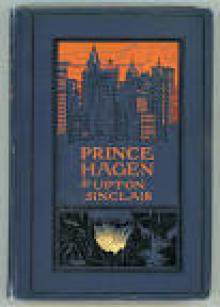 Prince Hagen
Prince Hagen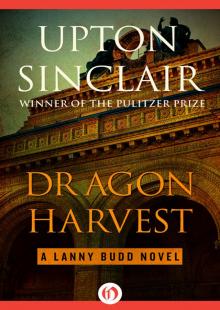 Dragon Harvest
Dragon Harvest The Jungle
The Jungle Sylvia's Marriage
Sylvia's Marriage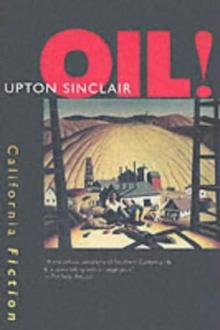 Oil! A Novel by Upton Sinclair
Oil! A Novel by Upton Sinclair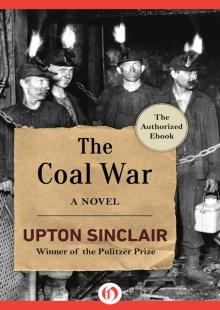 The Coal War: A Novel
The Coal War: A Novel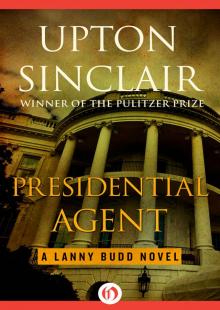 Presidential Agent
Presidential Agent World's End
World's End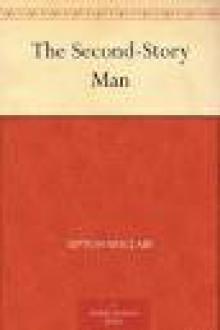 The Second-Story Man
The Second-Story Man O Shepherd, Speak!
O Shepherd, Speak!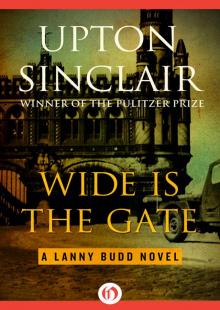 Wide Is the Gate
Wide Is the Gate The Return of Lanny Budd
The Return of Lanny Budd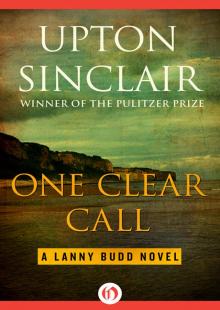 One Clear Call I
One Clear Call I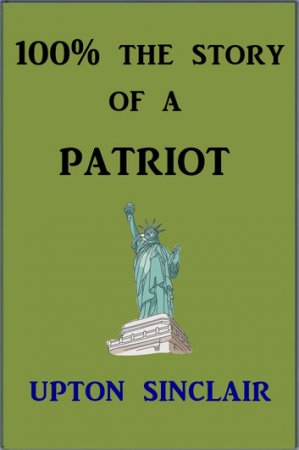 100%: the Story of a Patriot
100%: the Story of a Patriot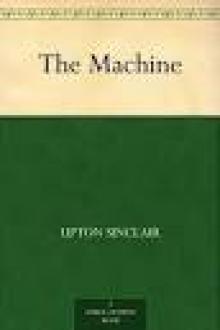 The Machine
The Machine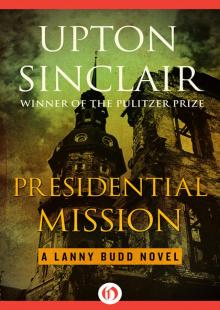 Presidential Mission
Presidential Mission A Cadet's Honor: Mark Mallory's Heroism
A Cadet's Honor: Mark Mallory's Heroism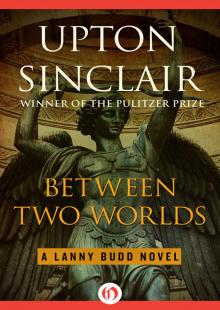 Between Two Worlds
Between Two Worlds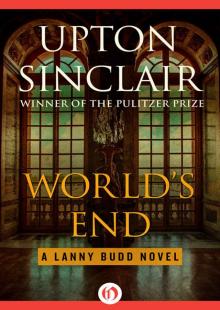 World's End (The Lanny Budd Novels)
World's End (The Lanny Budd Novels)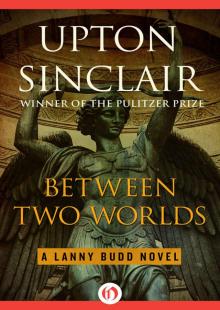 Between Two Worlds (The Lanny Budd Novels)
Between Two Worlds (The Lanny Budd Novels)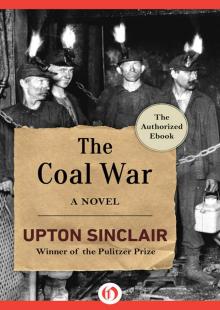 The Coal War
The Coal War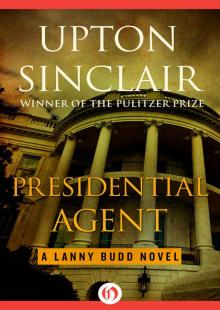 Presidential Agent (The Lanny Budd Novels)
Presidential Agent (The Lanny Budd Novels)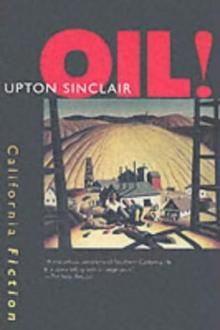 Oil (filmed as There Will Be Blood)
Oil (filmed as There Will Be Blood)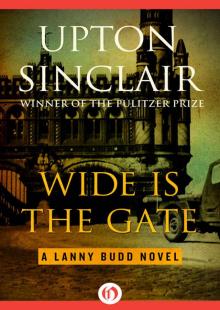 Wide Is the Gate (The Lanny Budd Novels)
Wide Is the Gate (The Lanny Budd Novels)